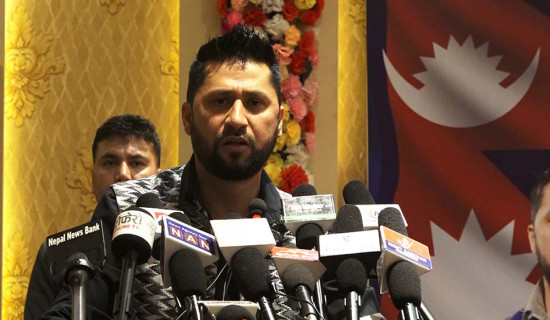- Saturday, 27 April 2024
Ways To Deal With Death Tactfully
Dr. Tulasi Acharya
Recently, a writer, scholar and a culturalist Satya Mohan Joshi passed away at the age of 103. Similarly, a few months ago, Queen Elizabeth II died at the age of 96 after the longest reign in the history of monarchs on the British throne. “Long Live the King.”
Two years ago, my wife lost her parents who died young. When your immediate family members die, it is very hard for you to turn the tragedy into a creative force and into your own strength. After all, what is death? Why is it hard to accept? How can one deal with it?
Knowing About Death
Many philosophers have viewed death as a good friend of human beings and invite us to discuss death sincerely. It is something that needs to be celebrated. In this context, a famous 20th century American singer, lyricist, and musician Jimi Henderson, in his song, writes—
I'm the one that has to die
when it's time for me to die,
so let me live my life,
the way I want to.
Rich, poor, lucky or unlucky ones—all of them must leave this world one day. All the emperors, you name them, surrender in front of death. A Danish writer Christian Anderson writes that only to live in life is not enough until one lives with joy and bloom. Similarly, a famous American doctor Martin H Fisher defines life as a ticket that allows one to watch a cinema of/on the earth. These ideas help us understand that life and death are interdependent. Where there is life there is death. There is the immediate and intimate relationship between life and death. There is no guarantee of the who, what, when, where, how of a person’s death.
Why does a human being fear death when one knows it is sure to come? One is always running away from death, always scared of it, but death doesn’t leave the person. In his article “Mrityu chintan, death contemplation,” Tekendra Adhikari writes that although the person knows about the surety of death, there are a few reasons why the person wants to run away from it. The reasons are due to 1. the psychology of fear 2. the lack of good relationship between human and nature, and 3. the greed, selfish love, anger, and jealousy.
That is the same death, which took the Queen away or my wife’s parents away, will come to take us away one day. The only thing is we don’t know when the death comes for sure in terms of the exact date—time, day, month, and year. After we know that, the statement of Martin H Fisher’s remains significant. He says, “Why should we be afraid of death? Isn’t it a beautiful experience one could ever have in life? Isn’t the death the final truth?” We may not be sure whether a child will be born or not, but when the child is born it is sure that the child will die.
A Russian writer Vladmir Nabokov reveals our consciousness about how pain and tragedy make us stern and unkind. Joseph Conrad’s opinion is how human lives are affected if there does persist miss-communication about life. Reading what these thinkers and writers have said, we understand that to live a meaningful life is to establish human relationships, to understand the pain of others and other miscellaneous things that have directly or indirectly affected human lives, such as the death, in this context.
Moral Capacity
In the New York Times best seller book “When Breaths Become Air,” Paul Kalanithi, who was a neurosurgeon by profession and became a writer later— who died before he turned 40 due to cancer— writes that he read literature and philosophy to understand what makes life meaningful; he read neuroscience to understand how the brain gives a human being the strength to understand the meaning of the world. He worked in the lab and established a good relationship with his friends.
There are some people who do many things to understand life and make it meaningful—some do magic, some discover things, some do social works, some establish a good relationship with people.
Have we ever taken enough time to think about bringing in a good relationship with people around and on behalf of humanity? Have we ever discussed the topics of pain in human lives and how to address it? Such questions will help us understand life and death and their relationships. Kalanithi writes, “The questions of life and death are the human moral questions.” Death is not an easy topic to deal with and to discuss.
Kalanithi who himself was a neurosurgeon saw many deaths in front of him and convinced and consulted many of his patients, but later he himself found it hard to deal with his own death, and, finally, he revealed saying, “I helped my patients understand about pain, but when I was in pain and suffered from cancer, the understanding of the pain was way more than how I understood it before
To be born and to die is indispensable for nature must run its course.
An absurdist dramatists Samuel Backet writes “One day we are born and one day we will die.” To live a meaningful life, only the knowledge on the topic wouldn’t be enough, we need a moral clarity and the capacity to understand death. There is a word in Greek language “arete” which means capacity that demands emotional, mental, and physical capacity.
The person thinks more about the material things, less about the moral deeds and inspirational works that could make a human life meaningful before they would die. If you find someone who could be by your side, hold your hand, that perhaps will make you go with a smile although one knows it is very hard to take death comfortably.
Even a morally capable person finds it very difficult. Martin Heidegger says, “to know that the time is passing is the state of boredom,” but on the contrary to realize the inevitability of death all the time is the search for meaningfulness in life. All the living beings face death sooner or later, but to look for meaning within it is to look for one’s identity and existence within it.
Although we are perfect within ourselves, this world is not complete and perfect, and we must be able to accept that. Yes, we forget everything when we are in pain. We forget to be who we are. We do not become subjects but turn into objects when we are in pain.
We are obliged to be under the control of pain, but to feel, to realize ourselves within the pain is to live a meaningful life. Nietzsche says, “the real life is the life of pain.” George Bataille writes that “death is the symbol of life, way to infinity.” Nepali maestro Narayan Gopal sings a song:
Kehi mitho bata gara raat taysai dhalkadaichh/Bhaere feri ekantama runuta chhadaichh (Please talk something nice as the evening is turning into night/Anyway we are going to cry in solitude after all.
Meaningful Death
When you can define your life and make it meaningful even at the mouth of death, that is the meaningful life you are living. Even if the writer Kalanithi knew that he was dying, he wrote “I must learn to live differently. Death is an inevitable wanderer so to know that I am dying until I die is the real living.”
We fear death and that is natural, but because of the fear we hardly discuss death. To discuss it is to understand it, the meaning of it, to find the identity and existence of what it means to live, to openly accept it, take the death as life.
An international Book prize winner Gitanjali Shree in her novel “Tomb of sand” writes addressing the condition of a 80-year-old woman, a character in the novel who is in depression after she lost her husband, but she regains hope and strength later—One can mourn, but what is gone is gone.
The death of my parents-in-law not only helped me understand death and its effect on their daughters, but also taught me to love them even more, respect them, and know the meaning of “take care” in one’s life. Such lessons are meaningful in life.
If we learn such things in life, we can also give some meanings to death and can frankly tell why death comes and why it is meaningful—it unites and reunites the relatives and friends, makes us be around the dead body and contemplate life and death, increases humanity, and establishes emotional relationships among relatives and helps us think of them through memories. I recall these lines from Edwin Leibfreed.
For death is but a passing phase of Life;
A change of dress, a disrobing;
A birth into the unborn again;
A commencing where we ended;
A starting where we stopped to rest;
A crossroad of Eternity;
A giving up of something, to possess all things.
The end of the unreal, the beginning of the real…
(Dr. Acharya is a writer and researcher)
How did you feel after reading this news?



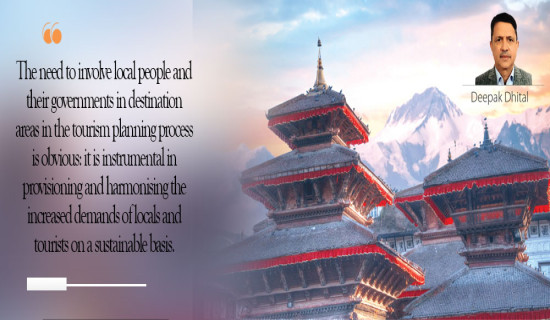


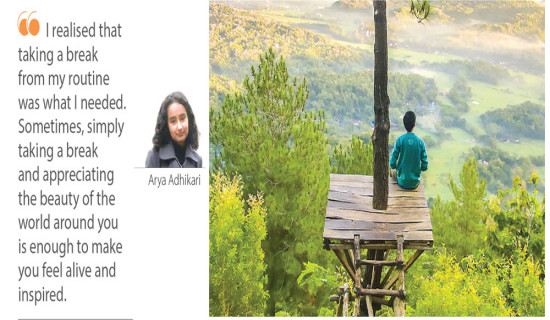
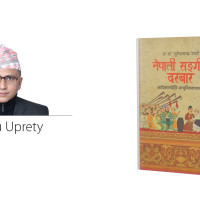
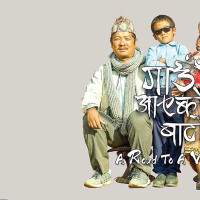

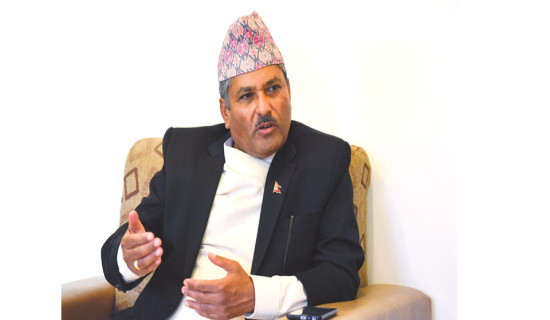


-original-thumb.jpg)

